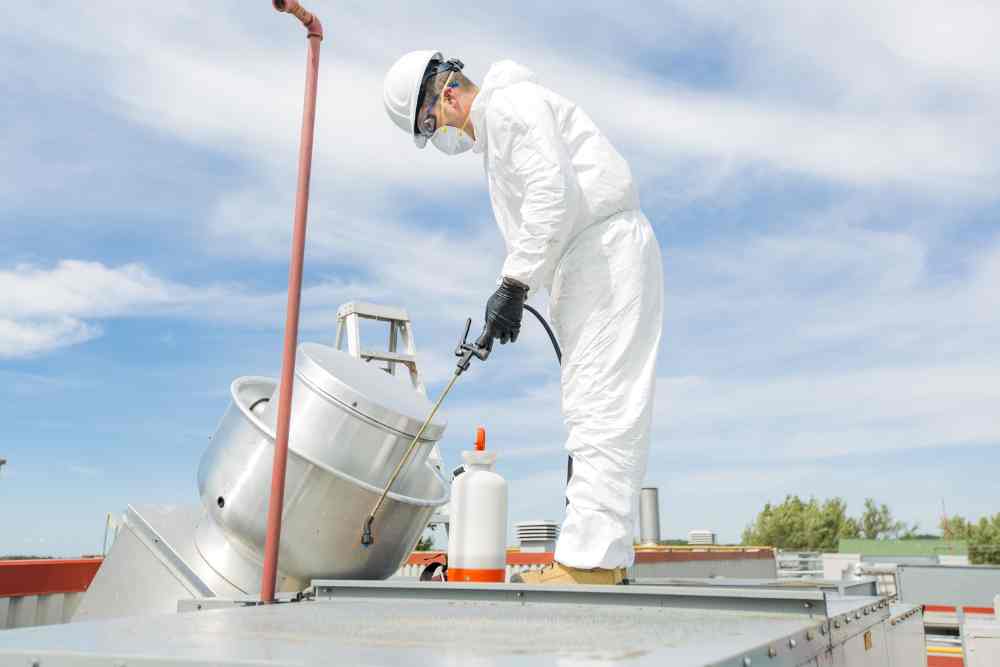Table of Contents
- Evaluation Criteria for Hood Cleaning Companies
- 1. Certification and Compliance
- 2. Experience and Expertise
- 3. Reputation and References
- 4. Insurance Coverage
- 5. Pricing and Contracts
- Frequently Asked Questions
- 1. How often should I have my kitchen hood cleaned?
- 2. What cleaning methods do hood cleaning companies use?
- 3. Can I clean my kitchen hood myself?
- 4. How can I maintain the cleanliness of my kitchen hood between professional cleanings?
- 5. What are the consequences of not cleaning my kitchen hood regularly?
- Summary
Evaluation Criteria for Hood Cleaning Companies

When it comes to maintaining a safe and clean kitchen environment, hood cleaning plays a crucial role. Commercial kitchens generate a significant amount of grease and grime, which can accumulate in the exhaust hood and duct system over time. This buildup not only poses a fire hazard but also affects the overall air quality and efficiency of the kitchen. To ensure the proper maintenance of your kitchen’s exhaust system, it is essential to hire a professional hood cleaning company. However, with numerous options available in the market, it can be challenging to choose the right one. In this article, we will discuss the evaluation criteria for hood cleaning companies to help you make an informed decision.
1. Certification and Compliance
One of the first things to consider when evaluating a hood cleaning company is their certification and compliance with industry standards. A reputable company should hold certifications from recognized organizations such as the International Kitchen Exhaust Cleaning Association (IKECA) or the National Fire Protection Association (NFPA). These certifications ensure that the company follows best practices and adheres to safety guidelines during the cleaning process.
Additionally, it is crucial to check if the company complies with local fire and health department regulations. They should have a thorough understanding of the codes and standards specific to your area to ensure compliance and avoid any potential penalties or legal issues.
2. Experience and Expertise
Experience and expertise are vital factors to consider when evaluating a hood cleaning company. A company with years of experience in the industry is more likely to have a deep understanding of different kitchen exhaust systems and the specific cleaning requirements for each. They will have encountered various challenges and developed effective solutions to ensure thorough and efficient cleaning.
Furthermore, it is essential to assess the expertise of the company’s technicians. They should be well-trained and knowledgeable about the latest cleaning techniques and equipment. Ask about their training programs and certifications to ensure that they are up-to-date with industry advancements.
3. Reputation and References
Reputation is a crucial aspect to consider when evaluating a hood cleaning company. Look for reviews and testimonials from previous clients to get an idea of their reputation in the industry. A reputable company will have positive feedback and a track record of delivering high-quality services.
Additionally, ask the company for references from previous clients. Contact these references to inquire about their experience with the company. Did they find the company reliable and professional? Were they satisfied with the quality of the cleaning services? Gathering this information will help you gauge the company’s reliability and customer satisfaction levels.
4. Insurance Coverage
Insurance coverage is an essential factor to consider when evaluating a hood cleaning company. The company should have comprehensive liability insurance to protect you from any potential damages or accidents that may occur during the cleaning process. Without proper insurance coverage, you could be held liable for any injuries or property damage that may occur on your premises.
Request proof of insurance from the company and ensure that it is up-to-date. It is also advisable to consult with your insurance provider to understand any specific requirements or recommendations they may have regarding hood cleaning companies.
5. Pricing and Contracts
While pricing should not be the sole determining factor, it is still an important consideration when evaluating hood cleaning companies. Compare the pricing structures of different companies and ensure that they provide a detailed breakdown of the services included in their packages.
Be cautious of companies that offer significantly lower prices than their competitors. It could be an indication of subpar services or hidden costs. Remember, quality hood cleaning requires skilled technicians, specialized equipment, and proper cleaning agents, all of which come at a cost.
Additionally, review the contract terms and conditions before finalizing your decision. Ensure that the contract clearly outlines the scope of work, frequency of cleaning, and any additional services or charges. It is advisable to avoid long-term contracts initially and opt for a trial period to assess the company’s performance before committing to a long-term agreement.
For professional hood cleaning services in Ontario, visit Ontario Hood Cleaning.
Frequently Asked Questions

1. How often should I have my kitchen hood cleaned?
The frequency of hood cleaning depends on the type of kitchen and the volume of cooking. As a general guideline, commercial kitchens should have their hoods cleaned at least every three to six months. However, high-volume kitchens or those that use solid fuel cooking equipment may require more frequent cleaning, such as every month or even weekly.
2. What cleaning methods do hood cleaning companies use?
Hood cleaning companies use a combination of manual scraping, pressure washing, and chemical degreasers to remove grease and grime from the exhaust system. They will typically start by scraping off the heavy deposits manually, followed by pressure washing the hood, ducts, and fans. Chemical degreasers are used to dissolve any remaining grease and ensure a thorough cleaning.
3. Can I clean my kitchen hood myself?
While it is possible to clean your kitchen hood yourself, it is not recommended. Hood cleaning requires specialized knowledge, equipment, and cleaning agents to ensure effective and safe cleaning. Professional hood cleaning companies have the expertise and experience to thoroughly clean the exhaust system and ensure compliance with safety regulations.
4. How can I maintain the cleanliness of my kitchen hood between professional cleanings?
To maintain the cleanliness of your kitchen hood between professional cleanings, it is essential to regularly clean the filters and grease traps. These components capture a significant amount of grease and should be cleaned or replaced as needed. Additionally, ensure that your kitchen staff follows proper cooking practices to minimize grease buildup in the exhaust system.
5. What are the consequences of not cleaning my kitchen hood regularly?
Not cleaning your kitchen hood regularly can have severe consequences. The accumulation of grease and grime in the exhaust system increases the risk of fire, as grease is highly flammable. It can also lead to poor air quality in the kitchen, affecting the health and comfort of your staff. Additionally, a dirty hood can reduce the efficiency of your kitchen’s ventilation system, resulting in higher energy costs.
Summary
Choosing the right hood cleaning company is crucial for maintaining a safe and clean kitchen environment. When evaluating hood cleaning companies, consider their certification and compliance with industry standards, experience and expertise, reputation and references, insurance coverage, and pricing and contracts. By carefully assessing these criteria, you can make an informed decision and ensure that your kitchen’s exhaust system is properly maintained.
Remember, regular hood cleaning is essential for fire prevention, maintaining air quality, and optimizing the efficiency of your kitchen. Don’t compromise on the quality of hood cleaning services, as it directly impacts the safety and functionality of your commercial kitchen.
- Evaluation Criteria for Hood Cleaning Companies
- hood cleaning
- kitchen exhaust cleaning
- restaurant hood cleaning






